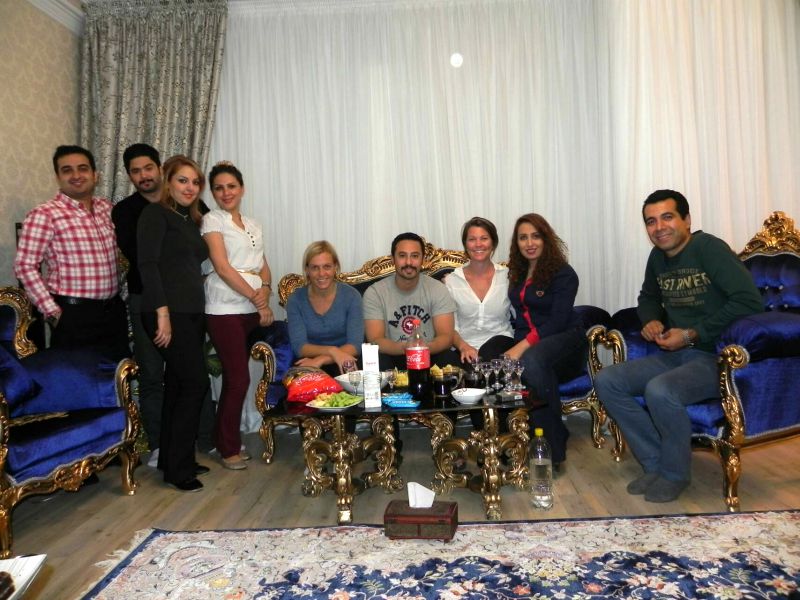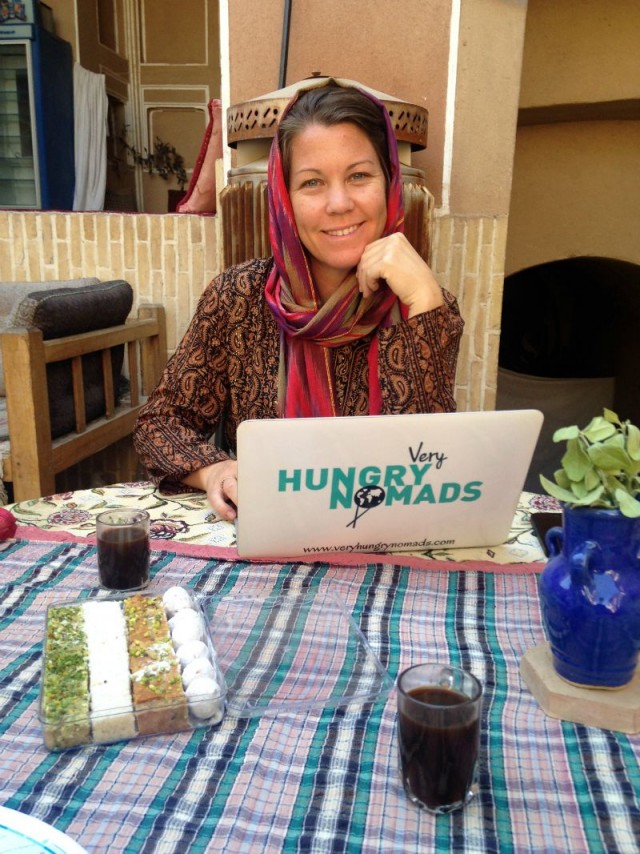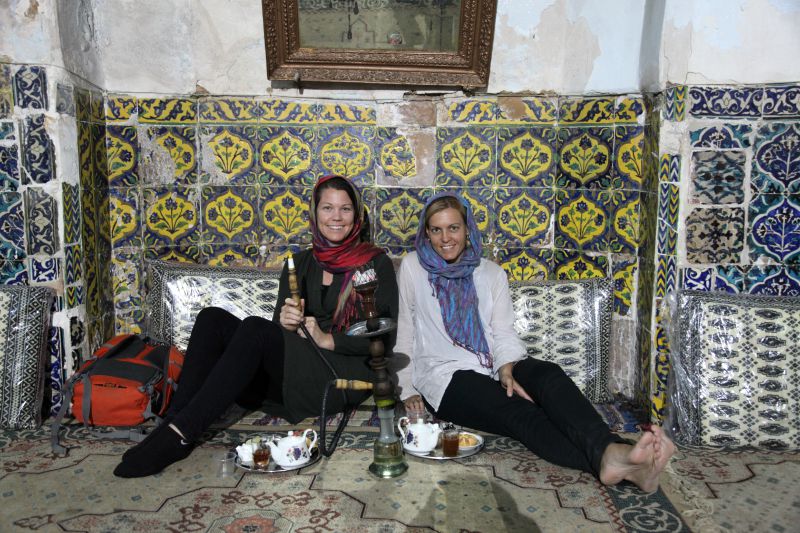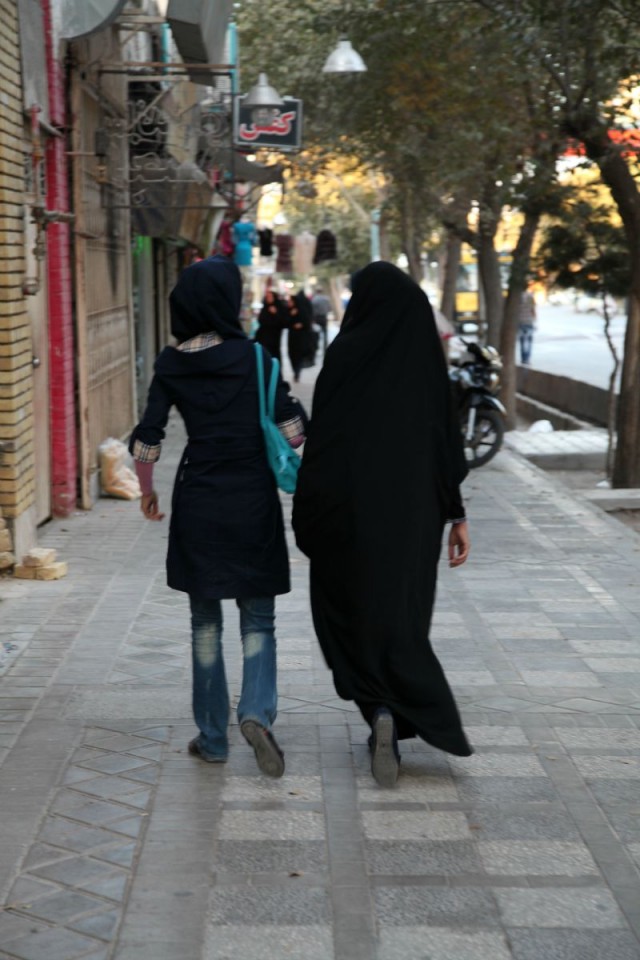Iran is a surprising destination in every way. Most people like myself probably grew up with visions of Iran being dark, unwelcoming and dangerous, and one of the last countries on our holiday list. If I listened to advice from family and friends who still have this perception of Iran, I would never have gone.
After having recently explored the country independently for 3 weeks, I have found that it is just the opposite.
Iran has to be seen to be believed. You need to be with the people to understand their incredible generosity and welcoming nature. Not to mention the magnificent mosques, domes and minarets dotted around the country.
I learned a great deal about this country by speaking with the locals and staying in their homes to gain a real insight into their culture.
Here are five of the most surprising things I learned from travelling in Iran.
-
Iranian people are among the friendliest and most giving people I’ve ever met.
Iranian people do not fit the stereotypical image that we are led to believe from the media. You will be stopped in the street to ask what country you are from and then in the next breath you will receive an invite to dinner. If this happens, my advice is to just say ‘yes’. It will enrich your experience and give you a different perspective of the Iranian people who are very curious to hear what you think about their country.

Plus, the food in their homes was the best I ate in the entire country. I was lucky to experience a ‘religious holiday’ in the city of Mashad whilst I was there. I was so humbled to see that people will rush over to you in the streets or in cars passing by to give you food such as cake, ice-cream and iced chocolate drinks. They call it ‘nazri’. I’ve never seen such generous acts of kindness.
-
Government ban on social media and communications
The government have banned online news sites such as BBC and social media sites such as Facebook and Twitter in Iran. This doesn’t mean that Iranians can’t and won’t access it to stay in the loop.

They use VPN software to hack these sites. Satellite television is also banned, but receiver dishes are seen everywhere on tops of houses and businesses so Iranians can watch TV series from America or other neighboring countries.
-
Alcohol is forbidden
Alcohol is banned in the entire country. There are harsh penalties from police if you are found consuming alcohol or are found intoxicated in public.

I met a young man at a dinner party one evening who showed me a photo of the outcome when he was found intoxicated by the police. He had a photo of his back with 18 lashes in total, handed out by the police. He had purchased some home made ‘wine’ from friends to celebrate a relative’s birthday. I learned that it is common for Iranians to make wine by distilling fruit such as grapes or plums to produce the very potent liquor.
-
Mandatory hijab for Women
While official dress codes are very strict, many young Iranians, particularly in major cities such as Tehran, push the boundaries of what is acceptable. Younger women wear the mandatory hijab (headscarf) on the very back of their head, and squeeze into super tight coats that barely cover the bottom. A full face of makeup is commonly applied to enhance features of the face as this is the only canvas left to display self-expression and beauty. I had several casual conversations with many women that I met who explained that if given the choice, they’d prefer to dress ‘western’ and lose the scarf.

It is a misconception that all women must wear the black ‘chador’. It isn’t compulsory and many women do so for several reasons including respect for others, religious devotion and cultural tradition. On a daily basis, I’d watch in awe as women would master the skill of wearing the chador while managing several tasks at once. Countless times I’d witness women jumping onto the public bus, re-adjusting the chador, tucking it under one arm, digging into their handbag (which is somewhere under there) to fetch a bus card whilst managing to hold a baby or child as well as cradle a basket of fresh flatbread.
-
The Nose-job Capital of the World
Iran has the highest rate of nose surgery in the world per capita. A Band-Aid over the nose can almost be classed as an extra fashion accessory. I noticed many women proudly displaying this look walking though shopping malls and downtown, I’m sure just hours after leaving the surgery.
Would you travel to Iran? Tell us in the comments!
I travelled in Iran in the mid 70’s and would love to go back and see tha changes that have occurred.
My memories of a beautiful country and friendly people.
Maybe one day
I’d imagine Iran would have been very different in the 70’s.
I’m pleased that even back then, you thought the country was beautiful and found the Iranians to be very friendly people. The warmth and hospitality shown by everyone was definitely my favourite part of my trip. 🙂
Rob, I hope you do return one day to create some more lasting memories in Iran.
I travelled through Iran in 1972 and found the people very friendly and hoping for a more western style life. We camped in the university grounds with our Double Decker bus and all the students wanted to be our friends and take us to see there beautiful city. Unfortunately we didn’t make is to Isfahan because of the India -Pakistan War (we could only cross the border one day a week) but I have always wanted to go back. I love the food as well. Maybe one day, I always think of those lovely students that we meet with such high hopes for a brighter future.
Natalie, that sound like a wonderful adventure!
I found the spirit of the students to be very similar on my travels too. The students, as well as new friends I made here were always very curious to learn and ask questions about western lifestyles. Isfahan was a highlight for me, such a beautiful city. Maybe you do need to return to see it?
I agree with you about the food. So delicious!
You mentioned that you travelled Iran in a double decker bus. Could it be the very early days of Topdeck Tours?
Iran has been on my bucket-list for so long. I may do it this year so wondering what advice for a solo traveller. I am 60 and love travelling on my own but love meeting up with family and friends and sharing parts of my holiday. For the last 10 years or so many of my experiences were with my darling Mum who so sadly died just before Christmas. My travels will never be be the same without her to meet up with, but I’ll never stop! (Her last trip was to Turkey at the age of 84 and then on to a World Conference where she ran one of the workshops!) I have met so many people from Iran who inspire me to go and most recently someone from Shiraz. I can’t wait to see the architecture and taste the food. All advice on where to go, where to stay etc gratefully accepted.
Hi Deb,
I’m glad that Iran is on your bucket list, it really is a fascinating and beautiful country, however I remember it was a challenging country at times, in relation to getting around, reading signs in farsi and the language barrier.
For this reason, if you are travelling solo, I’d suggest for you to consider joining a small group tour with a reputable company such as Peregrine Adventures. You would be able to share the experience with other like-minded travellers who want to explore the country and get involved in the culture, as well as having an experienced guide who speaks the language etc.
Alternatively if you want to ‘travel independently’, I found that the Lonely Planet Guidebook to Iran was the best source of information for solo travel. From the very few travellers I met along the way, everybody had a copy. I recommend using this guidebook to plan what parts of Iran you would like to see, and up-to-date information on travellers hotels/stays are listed in there. I found the guidebook in-valuable.
My favourite places in Iran were Isfahan, Yazd and Masouleh.
I hope this answers a few of your questions, and I wish you well in your future travels.
Deep history, Culture, and nature are the most important charms of Iran that attract every tourist.